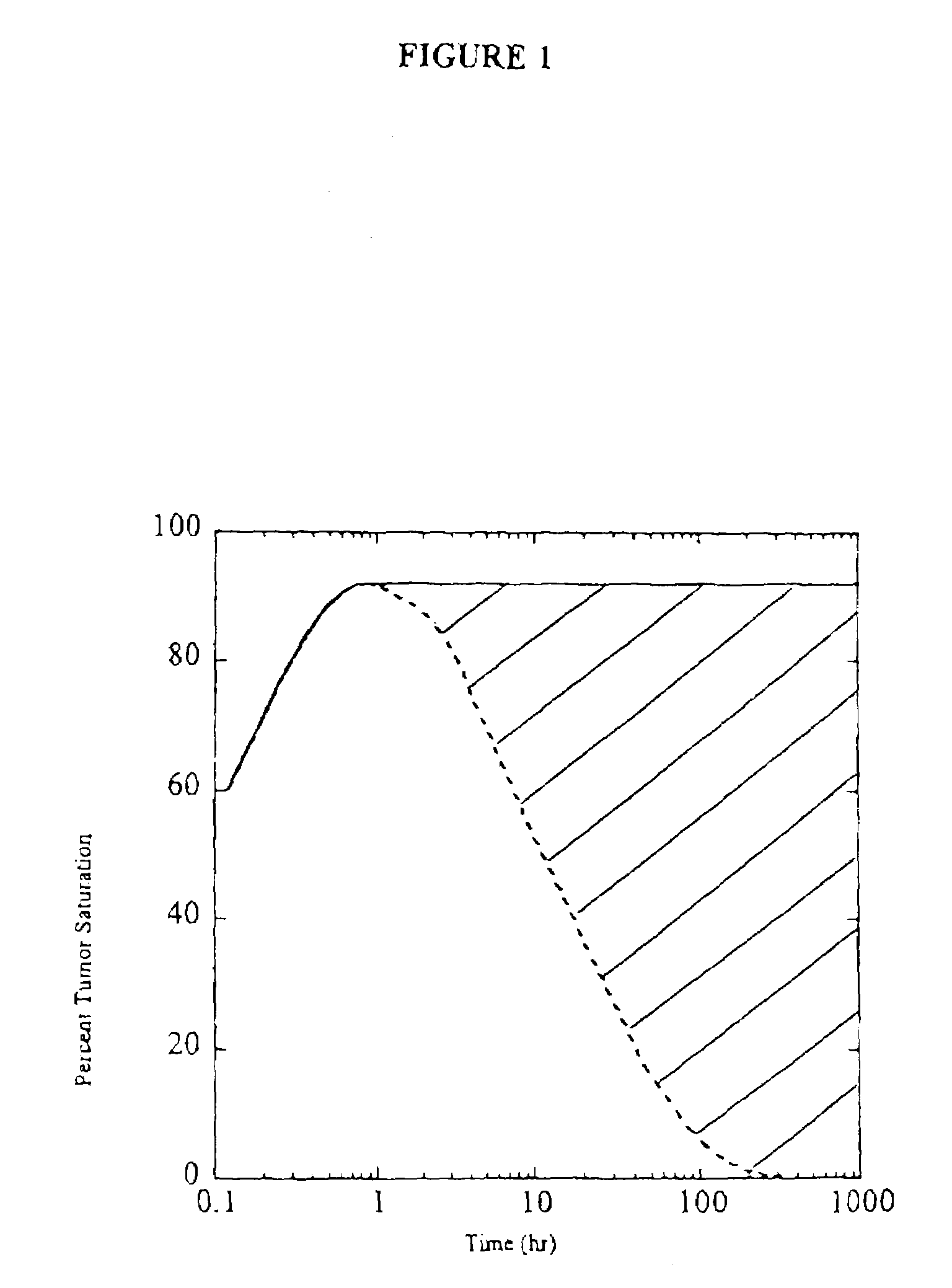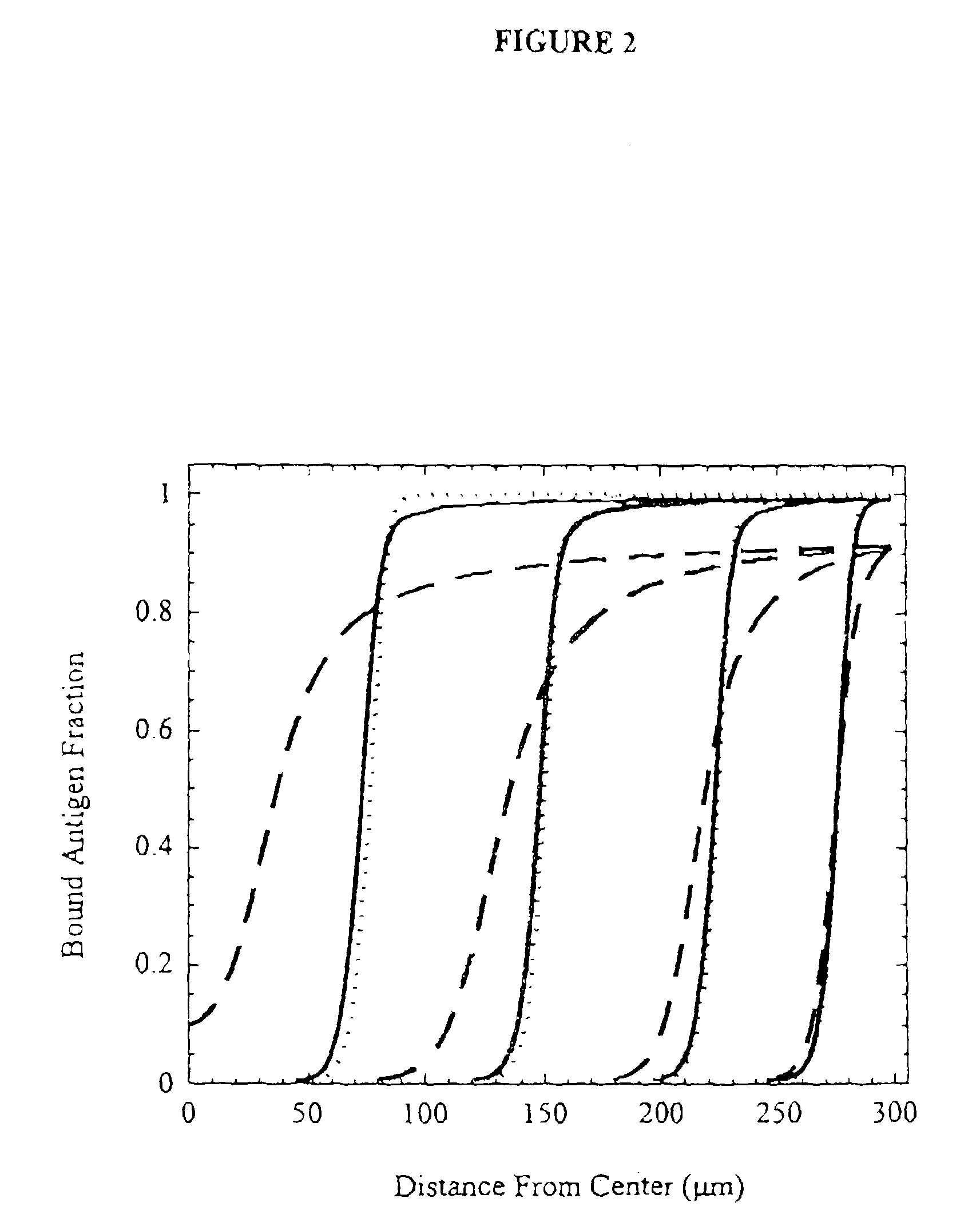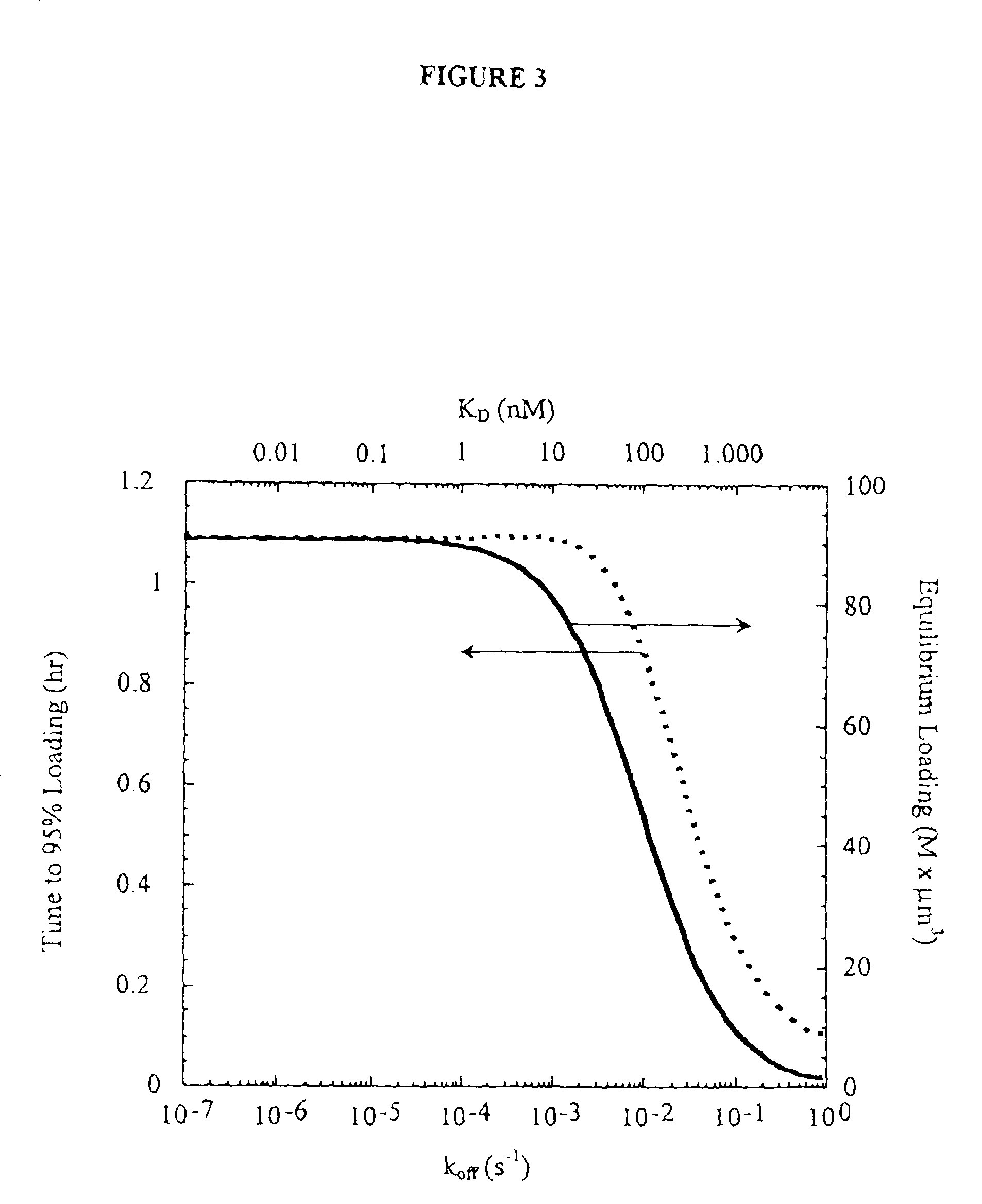Antibodies against tumor surface antigens
a technology of tumor surface and antigen, which is applied in the field of improved antibodies against tumor surface antigens, can solve problems such as ineffective treatment, and achieve the effects of high affinity, high stability, and low cos
- Summary
- Abstract
- Description
- Claims
- Application Information
AI Technical Summary
Benefits of technology
Problems solved by technology
Method used
Image
Examples
example 1
Mathematical Modelling of Antibody Penetration and Binding in Tumor Microspheroids
Description of Model
[0117]A model was constructed to describe antibody penetration in tumor microspheroids as it relates to diffusion, antibody / antigen binding, and antibody / antigen degradation. The model is based on the equations derived by Weinstein and coworkers (van Osdol et al., 1991) with minor modification. Specifically, convection is not included in the model because flow is negligible within nonvascularized micrometasases. The basic model equations are as follows:
[0118]∂Ab∂t=D1r2∂∂r(r2∂Ab∂r)-konɛAbAg+koffBEquation1∂Ag∂t=Rs-konɛAbAg+koffC-keAgEquation2∂B∂t=konɛAbAg-koffB-keBEquation3
[0119]The boundary conditions are specified by plasma pharmacokinetics and spherical symmetry. They are: zero antibody gradient at the center and specified surface antibody concentration.
[0120]∂Ab∂r(0)=0Ab(R)=ɛAbp(t)
[0121]With the following m...
example 2
Design of a Stable, High Affinity Single Chain Antibody Against Carcinoembryonic Antigen for use in Tumor Immunotherapy
Introduction
[0180]In this study, MFE-23 was engineered to increase the retention time of the antibody in the tumor relative to normal tissue. This was accomplished through partial humanization of MFE-23, and maturation of the affinity and stability of the scFv. Since MFE-23 was isolated from a murine phage library, there exists the possibility that its administration may elicit an immune response. This could in turn decrease the lifetime of the antibody in circulation. In order to reduce the likelihood of immunogenicity, the antibody was resurfaced to present a more “human” Fv framework surface (Pedersen et al., 1994; Roguska et al., 1994). The crystal structure of MFE-23 shows structural similarity to another crystallized human antibody) (Boehm et al., 2000). This resemblance allowed for the determination of twenty-eight residues in MFE-23 that were over 30% solven...
PUM
| Property | Measurement | Unit |
|---|---|---|
| dissociation constant | aaaaa | aaaaa |
| dissociation half time | aaaaa | aaaaa |
| temperature | aaaaa | aaaaa |
Abstract
Description
Claims
Application Information
 Login to View More
Login to View More - R&D
- Intellectual Property
- Life Sciences
- Materials
- Tech Scout
- Unparalleled Data Quality
- Higher Quality Content
- 60% Fewer Hallucinations
Browse by: Latest US Patents, China's latest patents, Technical Efficacy Thesaurus, Application Domain, Technology Topic, Popular Technical Reports.
© 2025 PatSnap. All rights reserved.Legal|Privacy policy|Modern Slavery Act Transparency Statement|Sitemap|About US| Contact US: help@patsnap.com



